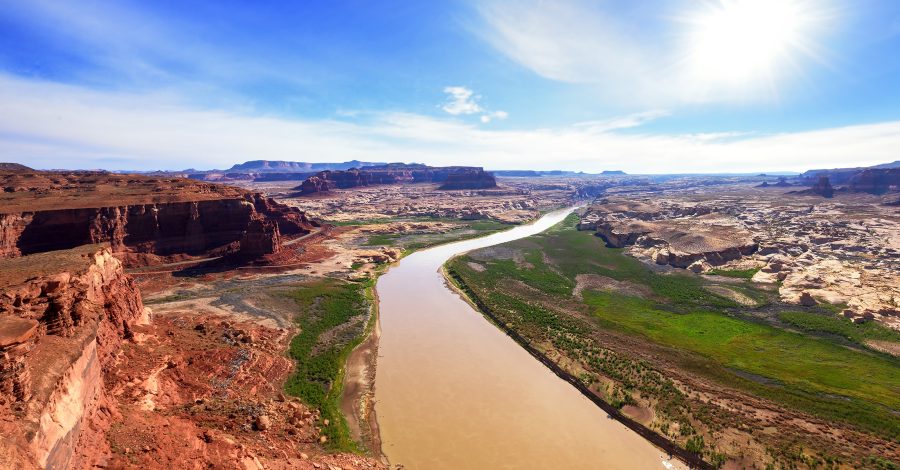WestWater Research recently attended the annual Colorado River Conference, hosted by the Getches-Wilkinson Center at the University of Colorado Boulder. This year’s theme, “Turning Hindsight into Foresight: The Colorado River at a Crossroads,” captured the urgency and complexity of the moment, as stakeholders across the basin await progress on a new seven-state agreement to guide river management beyond 2026.
A notable highlight was the address by Scott Cameron from the U.S. Department of the Interior, who expressed a renewed optimism about the potential for reaching a collaborative agreement. Encouragingly, this sentiment was echoed by basin state representatives and tribal leaders, signaling a shared commitment to finding durable, inclusive solutions prior to the looming 2026 deadline.
The conference continues to serve as a vital convening space for a wide range of voices, including tribal nations, public sector officials, private sector entities, NGOs, nonprofits, and environmental groups. This diversity of perspectives is essential to shaping a sustainable future for the Colorado River Basin.
It was also inspiring to see so many students in the room. Hosting the event at CU Boulder helped engage the next generation of water leaders. It served as an important reminder that the future of the river will be shaped not only by today’s decisions but also by tomorrow’s innovators.
While many of the policy discussions – around tribal participation, hydrologic realities, and equitable water allocation – echoed themes from past years, one thing is clear: the river’s declining supply cannot sustain historic demand. Regardless of the policy outcomes, significant demand reductions will be necessary across the basin due to reduced snowpack, runoff, and reservoir storage.
To prepare for this future, water users and managers must begin building the tools and funding mechanisms needed to support demand reduction. Key initiatives include:
- Municipal leadership in developing funding pools for compensated demand management, especially as federal funding becomes less certain.
- Continued development and refinement of demand management programs, with a focus on sharing best practices across states.
- Sustained tribal engagement, including support for the Water and Tribes Initiative.
- Increased research and support for agriculture under changing climate conditions, ensuring rural economies can adapt and thrive.
At WestWater Research, we’re proud to support clients navigating these challenges. From water market transactions and water valuations to long-term water resource planning, we help our partners make informed, strategic decisions in an increasingly complex water landscape.
For more background on the conference, visit the event page, and view the full agenda here.


